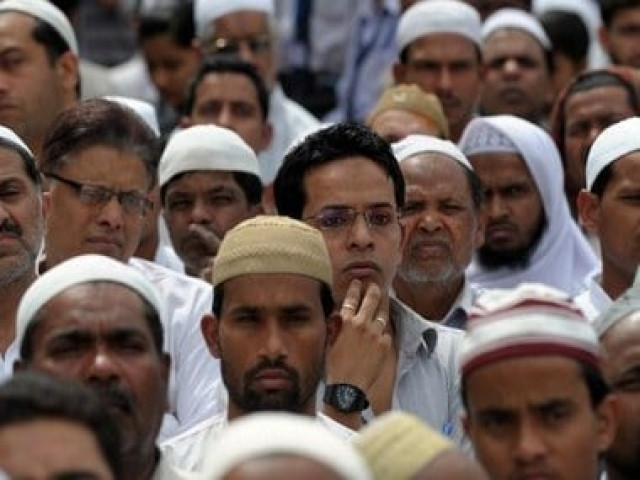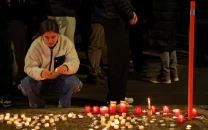What the Muslim 'youth bulge' means for the world
Being the primary form of political expression for Muslim youth does not make Islam the primary cause of violence

PHOTO: AFP
The growth suggests there are factors related to how Islam is being interpreted that contribute to large family size. Of course, one reason why Muslim societies have stubbornly high birth rates could be owing to ideology.
Nearly 1.5 million people begin annual Hajj in Saudi
Regardless, the fact that young people matter is certain from academic literature on demography and social change. This holds true for all communities, irrespective of one's caste, creed, race and religion. Young men and women who are disappointed by lack of opportunities have fewer alternatives by which to peacefully effect political change. Such is the plight of the world's Muslim youth population.
One reason, then, for apprehension about the alarming rate of Muslim 'youth bulge' is that much of it is happening in the least developed parts of the Muslim world, where there are least opportunities, if any, for peaceful political expression and prosperity.
Saudi Arabia, Iran trade barbs
In the Sahel, for example — the band of African countries from Mali to Sudan that borders the Sahara — governments are oppressive and birth rates are extremely high. Bad government institutions and growing desertification due to global warming mean youth there will grow up with few opportunities. Some might try to migrate to wealthier countries; others may lower their expectations for life and try to make what they can of it while still others will join up with the terrorist or guerrilla groups.
It would perhaps be helpful to consider the population structure of the Muslim world since doing so would help to emphasise the "young man or youth" aspect of the instability rather than the 'Muslim' or religious aspect. After all, just because Islam is the primary form of political expression for Muslims does not make it the primary cause of violence. Young people with few or no opportunities explains a lot, if not most, of the problem.
Rituals of the hajj
The moral of the story is that it is easy to lure young men with few opportunities to fight, and harder to persuade young men with more opportunities to do so. This is one reason why countries with youth bulges -- especially in the Muslim part of the world -- can be more violent. "Most come for the money," a militia recruiter of Afghan men once said in an interview, lending credence to this claim.
Therefore, it is plausible to conclude that instability in the Muslim world may have less to do with ideologies that promote violence, and more to do with the high proportion of youth -- especially with little or no opportunities towards prosperity.
This article originally appeared on Washington Post.



















COMMENTS
Comments are moderated and generally will be posted if they are on-topic and not abusive.
For more information, please see our Comments FAQ